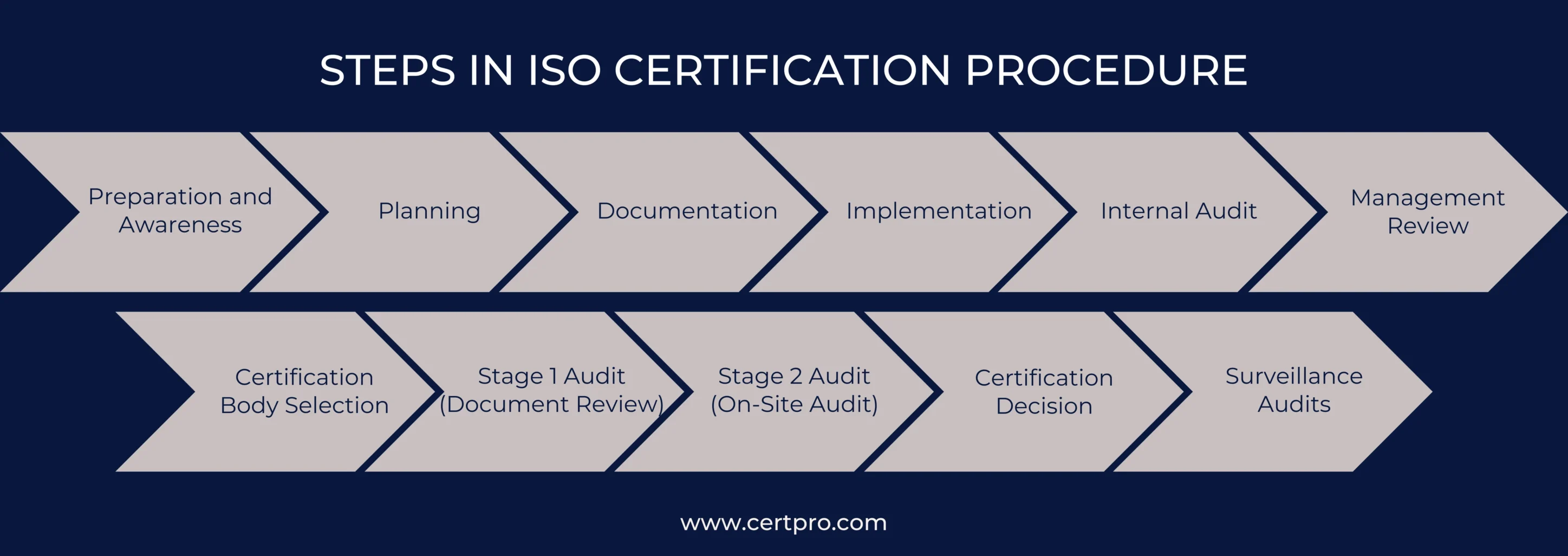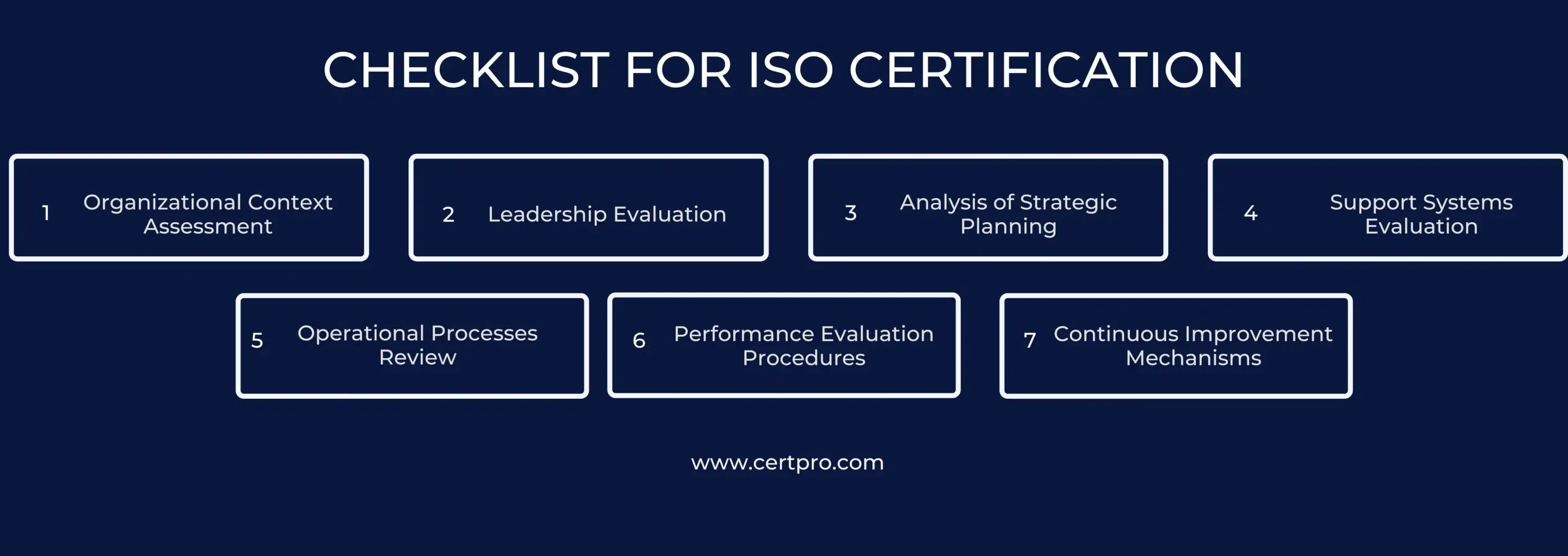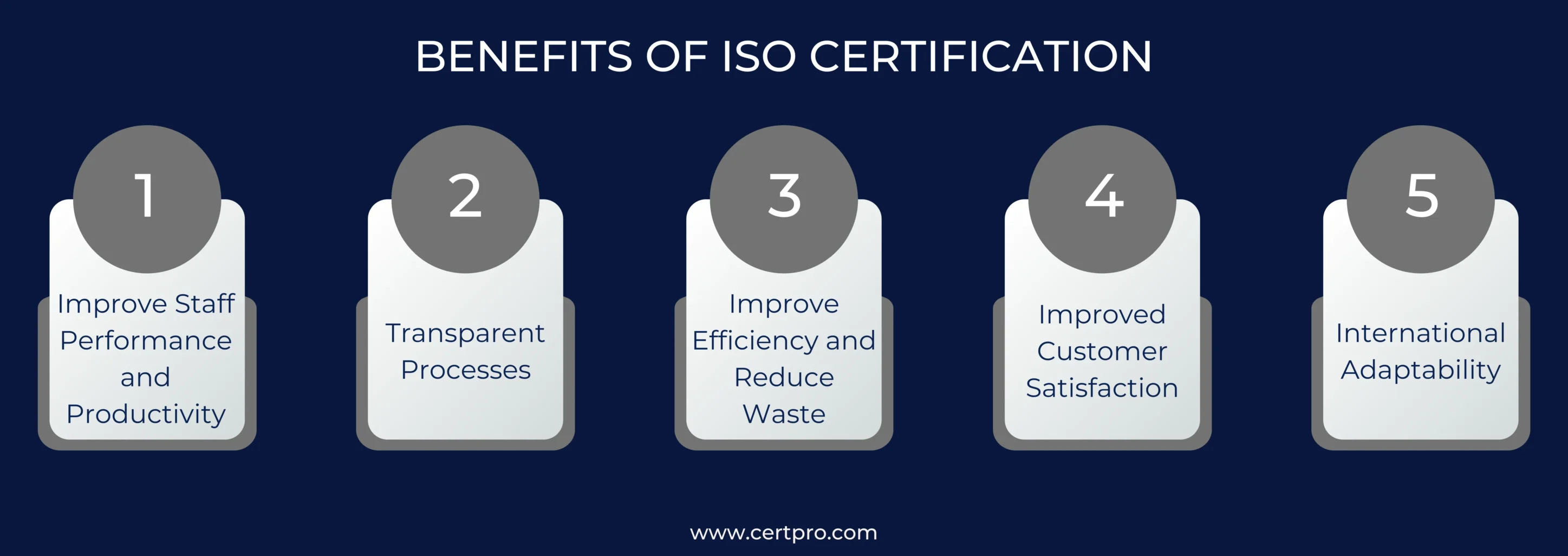australia
ISO certification in australia
The impact of globalization on today’s businesses is impressive, leading companies to make products for the global market. This urge makes it necessary to improve the quality of products and services. ISO certification in Australia is essential for business growth. The organization must follow specific quality controls and rules to make the business international. However, ISO certification in Australia signifies that organizations follow strict regulations. ISO is essential for developing customer trust in products and services in the evolving Australian market. It improves the product or service quality and increase acceptance globally.
ISO certification process was developed in the middle of the 20th century to assure customers about product safety. Also, it ensures a safe environment for employees. Therefore, ISO certification in Australia makes international trade easier and guarantees the quality of the goods. Thus, the certification helps the business grow globally. The buyers will get quality products and services from an ISO-certified company. Go through the whole page for more details about the ISO certification in Australia.
WHY ISO CERTIFICATION IN AUSTRALIA?
ISO in Australia is crucial as it helps open up many opportunities for your organization. ISO increases your organization’s productivity and works hard to satisfy the customer. Again, certification enables you to lower risks and create opportunities. It makes your business more flexible in response to the changing market. Additionally, ISO certification in Australia reduces the risks of repeated mistakes due to the record-tracking process. Further, ISO helps businesses grow and make advertising efforts in Australia. Therefore, promoting your business this way shows that it meets foreign standards, increasing demand in the international market. Similarly, companies want their sellers to have ISO approval before the collaboration. The certification process keeps your business from having skill gaps and encourages employees. Therefore, obtaining ISO approval makes it easier to sustain in the global market.
UNDERSTANDING ISO CERTIFICATION IN AUSTRALIA
The ISO 9001 accreditation demonstrates that an Australian company is committed to providing dependable, outstanding goods and services. Regarding environmental responsibility, the ISO 14001 standard aligns with Australia’s dedication to sustainable industrial development. Safeguarding sensitive data is the main focus of ISO 27001, which is especially relevant to Australia’s continuous digital transformation path. The ISO certification greatly benefits the diversified Australian market by boosting consumer confidence and empowering firms to compete globally. Beyond demonstrating compliance with strict standards, ISO certification improves product reliability through process simplification, waste reduction, and inefficiency elimination. Australia’s ISO certification allows companies to build robust frameworks that adhere to global best practices. Businesses that put quality, sustainability, and security first not only boost their profits but also help Australia’s standing internationally. The International Organization for Standardization (ISO) formally recognizes ISO certification as proof that a company’s management system, procedures, goods, or services fulfill predetermined standards. ISO is a worldwide recognized, independent organization that establishes standards to guarantee quality, safety, and effectiveness. Businesses with ISO certification frequently have a competitive edge by showcasing their dedication to quality and ongoing development.
Related Links
SOC 2 in Australia
ISO 27701 in Australia
GDPR in Australia
ISO 27018 in Australia
HIPAA in Australia
CCPA in Australia
PIPEDA in Australia
ISO 17025 in Australia
ISO 13485 in Australia
CE Mark in Australia
GDP in Australia
GLP in Australia
ISO 9001 in Australia
ISO 14001 in Australia
ISO 45001 in Australia
ISO 22000 in Australia
HACCP in Australia
ISO 22301 in Australia
ISO 21001 in Australia
ISO 41001 in Australia
ISO 20000-1 in Australia
Australia’s emphasis on sustainability aligns with ISO 14001 certification, which covers environmental management. Customer requirements are often given priority in ISO standards, which improves retention and satisfaction. ISO certification is essential for Australian suppliers participating in international supply chains. Continuous improvement is a key component of ISO certification and helps Australian businesses stay competitive by streamlining operations. Ultimately, ISO certification builds a business’s trust with partners and customers by demonstrating adherence to international quality standards.

STEPS IN ISO CERTIFICATION PROCEdure in australia
The following steps must be taken to implement ISO certification in Australia successfully. However, the processes can be changed to suit the company’s needs.
Preparation and Awareness: Before implementing the ISO standards, you must know your company’s goals. Therefore, knowledge about the standards, benefits, and implementation process can help in manageable execution.
Planning: Adequate planning can help carry out strategy more effectively. Companies need to find the gaps. In addition, the process requires making a plan to mitigate risks. Therefore, effective planning and execution can strengthen your organization’s compliance status.
Documentation: Implementing controls requires documentation to review their effectiveness. In external auditing, control documentation helps the auditor recognize the impact of the implemented controls.
Implementation: Enforcing new controls is essential for ISO certification. In addition, the implementation process demands close monitoring and adjustment for better results.
Internal Audit: It analyzes your organization’s existing procedures and determines their weaknesses. Thus, there are specific requirements before the final audits.
Management Review: This review examines the ISO application’s success, usefulness, and growth and decides what needs to be changed or improved.
Certification Body Selection: Businesses get certified by outside bodies, not directly from ISO. So, choose certification groups carefully based on their knowledge and skills.
Stage 1 Audit (Document Review): During this step, documentation and processes are reviewed to ensure they comply with the standards, fix any problems, and ensure the work meets the quality standards set.
Stage 2 Audit (On-Site Audit): An external auditor performs the final audit after making changes. This process ensures that non-conformities are gone and gets an ISO report.
Certification Decision: The end goal of the certification process is to get an ISO audit report. If the auditor is satisfied with the results, issue a written report. However, if the auditor finds flaws in the process, advise making the necessary changes and going for further audit.
Surveillance Audits: This ensures that regulations are followed. Also, regularly monitoring and auditing the policies and methods improves their effectiveness.
Supporting partnerships with the auditing and consulting firm helps make the certification process straightforward.

ISO CERTIFICATION PROCESSING TIME
In Australia, getting ISO certification takes at least three to six months. The main goal is to follow certain steps to become certified. Companies must set up and maintain some processes for a certain amount of time before their first audit. In addition, implementing ISO is complex, and you can seek help from an expert. In this regard, CertPro, an ISO consultant in Australia, could help you. CertPro will guide you in the enforcement of correct methods in the implementation of ISO. The certification will continue for three years but requires a yearly surveillance audit. You need to work with skilled ISO experts to align your business with ISO standards. It makes sure that things are done correctly and adequately.
CHECKLIST FOR ISO CERTIFICATION IN AUSTRALIA
Use the following audit plan to make sure that ISO guidelines are being followed:
Organizational Context Assessment: Comprehending the organization’s goals regarding certification is favorable. Therefore, it helps to recognize external and internal factors and stakeholders’ expectations. In addition, the process assists in identifying the potential threats of compliance.
Leadership Evaluation: It shows the organization’s commitment to delivering superior-quality services and indicates that the company possesses the resources to implement compliance.
Analysis of Strategic Planning: It is necessary to show how they plan to make any changes required in the approach. Strategic planning also ensures that the organization’s resources are used well and risks are managed.
Support Systems Evaluation: Implementing a quality management system is essential. The process requires infrastructure, the operating environment, expertise, and techniques.
Operational Processes Review: Organization must evaluate their services thoroughly. This helps them gain insight into their susceptibilities. Again, this process requires a more comprehensive analysis from an external auditor.
Performance Evaluation Procedures: The process provides ways to monitor and rate success. As a result, manager reviews, internal audits, and customer feedback surveys can all be used.
Continuous Improvement Mechanisms: Set up programs that encourage system improvement over time. According to ISO guidelines, steps should be taken to promote continued growth.

POPULAR ISO STANDARDS IN AUSTRALIA
Many Australian businesses have accepted ISO standards, which have raised the bar for safety, quality, and efficiency. In particular, ISO 9001:2015 is significant because it focuses on quality control systems that ensure that goods and services are reliable and consistent. ISO 14001:2015 covers environmental management systems and encourages moral behavior in the face of the country’s continued economic growth. It shows that Australia is committed to sustainability.
As the country becomes more digital, ISO 27001:2013 has become more critical for data protection. In line with Australia’s goals for digital security, this guideline helps businesses keep private information safe. The car industry uses ISO 26262 to ensure electrical and computer systems work safely.
In Australia, companies focus on worker health and safety, and ISO 45001:2018 also emphasizes health and safety at work. ISO 22000:2018 covers food safety management systems in the food business. These systems are essential for keeping customers safe. A standard called ISO 50001:2018 discusses energy management. This is in line with Australia’s plans for using renewable energy.
In brief, these ISO standards are raising industry standards and helping Australian businesses evolve worldwide because they align with Australia’s new technologies, government rules, and growth goals.
BENEFITS OF ISO CERTIFICATION IN AUSTRALIA
ISO certification in Australia improves your business capabilities. The certification shows that the company is setting standards for quality management systems. Here is a short list of the following benefits to help you understand it better:
Improve Staff Performance and Productivity: Getting ISO certification in Australia is a huge chance for businesses to become more efficient and effective. Standardizing routines and processes makes it easier for workers to work together.
Transparent Processes: As part of the certification process, inspectors from outside the company do an audit. This makes it easier to improve and sets up a clear way to do things. In addition, ISO standards help show process metrics, improve working methods, and improve things. Standardization reduces uncertainty and confusion about jobs and makes discussing what is expected of people easier.
Improve Efficiency and Reduce Waste: Obtaining ISO certification in Australia can help your business grow. It cuts costs and gets rid of junk while running the business. ISO in Australia sets guidelines for quality management systems, which can help a company make more money.
Improved Customer Satisfaction: ISO certification in Australia shows your clients that your business is trustworthy. So, getting ISO approval is a valid way to show that you are dedicated to making high-quality products and using efficient methods. When a company in Australia gets ISO approval, its goods and services meet the strictest quality standards worldwide.
International Adaptability: ISO in Australia shows that its goods and services meet strict international standards.
The standards ensure that the company’s services and goods meet foreign standards. They also show that the company has a clear plan to reduce and eliminate possible risks. So, getting ISO gives businesses the freedom to work anywhere in the world, which helps them grow.

INDUSTRIES THAT BENEFIT FROM ISO CERTIFICATION IN AUSTRALIA
People are starting to understand how vital ISO certification in Australia is to their businesses. How can it lead to many benefits that affect many industries nationwide? These awards are more than just symbols; they show a strong dedication to quality, safety, and the environment. ISO 9001 certification encourages an attitude of constantly finding ways to improve things. This helps the production sector become more efficient and make better products. The result makes customers happier and gives businesses a better base in competitive markets where reliability is critical.
Data is more critical today than ever, so getting approval for ISO 27001 is vital for IT. It strengthens risk management and data protection, which is like a wall. This protects private data and lets the industry use Australia’s latest technological advances. This is important for earning clients’ trust and ensuring the business succeeds. In the same way, ISO/TS 16949 standards are essential for the auto industry because they ensure that cars are safe and reliable. According to strict rules and standards for quality, Australia is even more vital as a world leader in making expensive cars.
These certifications affect society in addition to a particular industry, making building practices more eco-friendly and long-lasting. Additionally, they help make Australia greener, happier, and wealthier by raising healthcare standards, improving schools, and spreading eco-friendly practices across many fields.
CERTPRO: EMPOWERING YOUR BUSINESS TO ATTAIN ISO CERTIFICATION EFFORTLESSLY
Getting ISO certification in Australia shows that your business can be trusted globally. Because of this, CertPro can help your company follow ISO guidelines. We are ISO consultants in Australia and follow the rules to give our customers the best service possible. In addition, our experts will help you create a complete system for approval. CertPro also changes the standard based on what the company needs. Again, we will provide full services during the certification and surveillance reporting process.
FAQ
What is ISO certification, and why is it important in Australia?
ISO certification in Australia signifies adherence to international standards, essential for operational efficiency, quality assurance, and global market trust across diverse industries.
How can a company in Australia obtain ISO certification?
To achieve ISO certification in Australia, companies must undergo processes such as certification preparation, application of ISO standards, internal audits, selection of a certification body, and external audits.
What are the essential steps in the ISO certification process in Australia?
The ISO certification process in Australia involves preparation, planning, documentation, implementation, internal audit, management review, certification body selection, document review, on-site audit, certification decision, and surveillance audits.
Why is ISO 27001 certification crucial for the IT industry in Australia?
ISO 27001 certification in Australia is essential for the IT sector to strengthen risk management and data security procedures, safeguard sensitive data, and ensure business success.
How do ISO certifications contribute to sustainability in Australia?
ISO certifications in Australia enhance construction techniques, make industries more environmentally friendly, and contribute to a greener, healthier, and more prosperous Australia by elevating standards in healthcare and education.
THE IMPORTANCE OF SOC 2 FOR SAAS COMPANIES: BENEFITS AND REQUIREMENTS
SOC 2 is a data security standard developed by the American Institute of Certified Public Accountants (AICPA). The standard offers the desired level of privacy and security regarding customer information. The rule is not mandatory, but it has multiple benefits for...
DIFFERENT HIPAA REQUIREMENTS: UNDERSTANDING THE RULES AND REGULATIONS
With increasing cyberattack trends, organizations must take appropriate measures to secure their lifeblood. Similarly, patient health and financial information need protection in the healthcare sectors. Therefore, the Health Insurance Portability and Accountability...
NAVIGATING DATA PRIVACY FRAMEWORKS: A COMPREHENSIVE GUIDE
Globalization has intense effects on business functioning and scaling. In today's digital world, companies are generating an unprecedented rate of data that requires protection from emerging cyber threats. In addition, recurring data breaches and privacy concerns make...












